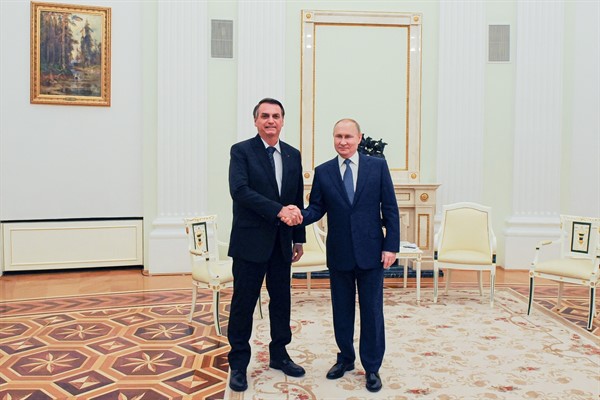Over the past decade or so, the Kremlin has endeavored to exploit Latin America’s internal divisions and its differences with the United States with the purpose of building a beachhead of diplomatic and strategic support in a region geographically close to the U.S. The success of that project is now being put to the test in the aftermath of Russia’s invasion of Ukraine. Three weeks into the ensuing war, there is little evidence that Moscow’s efforts to woo Latin America have yielded any significant benefits. In fact, if anything, they look like a failure.
The Kremlin has spent billions of dollars supporting autocratic regimes in Latin America, boosting the fortunes of its entrenched, embattled leaders. It became a lifeline to Venezuelan President Nicolas Maduro, a major supporter of both President Daniel Ortega’s increasingly dictatorial regime in Nicaragua and the inheritors of former President Evo Morales’ leftist government in Bolivia.
In addition to arms shipments, military exercises and huge loans to key players, Russia has invested heavily in promoting anti-Western propaganda and targeted disinformation campaigns in Latin American countries, according to multiple studies. Purporting to offer the region alternative sources of news, it has launched Spanish-language versions of its controversial news organizations RT and Sputnik, which have opened and staffed news bureaus in Latin America. Their coverage skillfully blends real news and light-hearted stories with a steady stream of material that promotes Russia while disparaging the United States and Western democracies.

